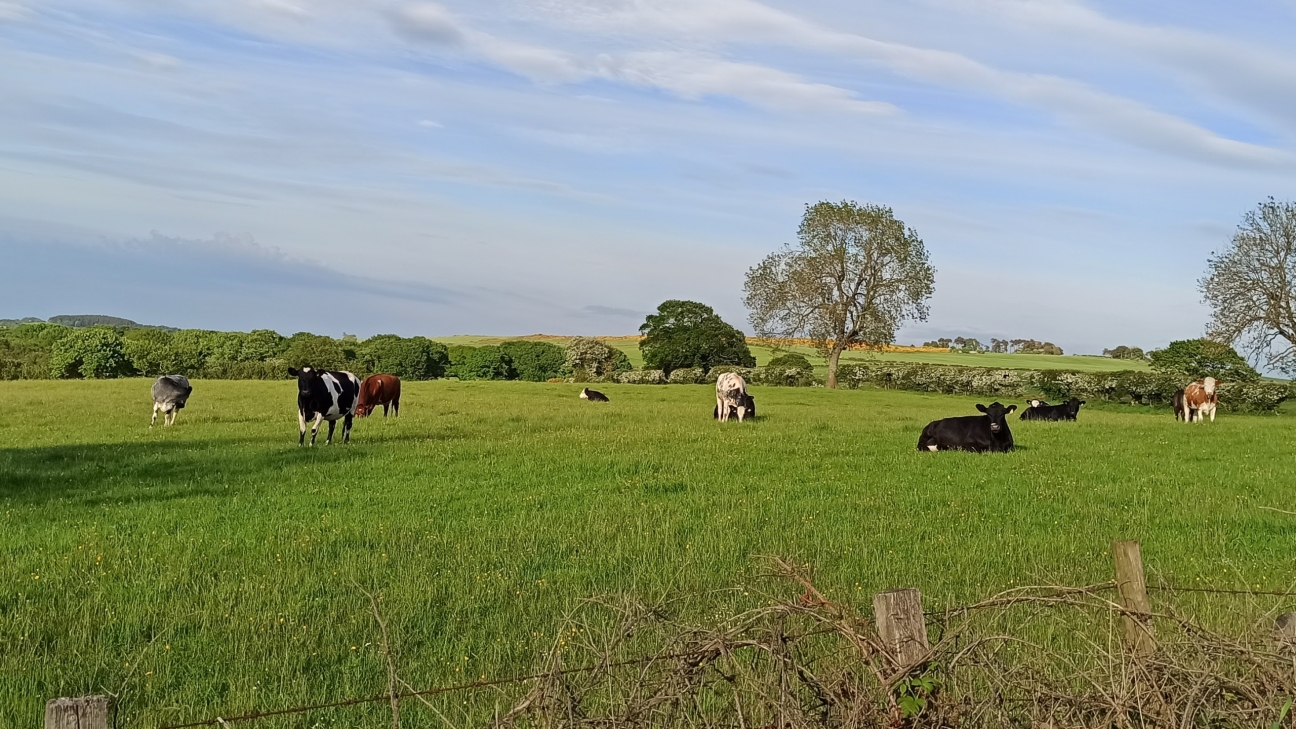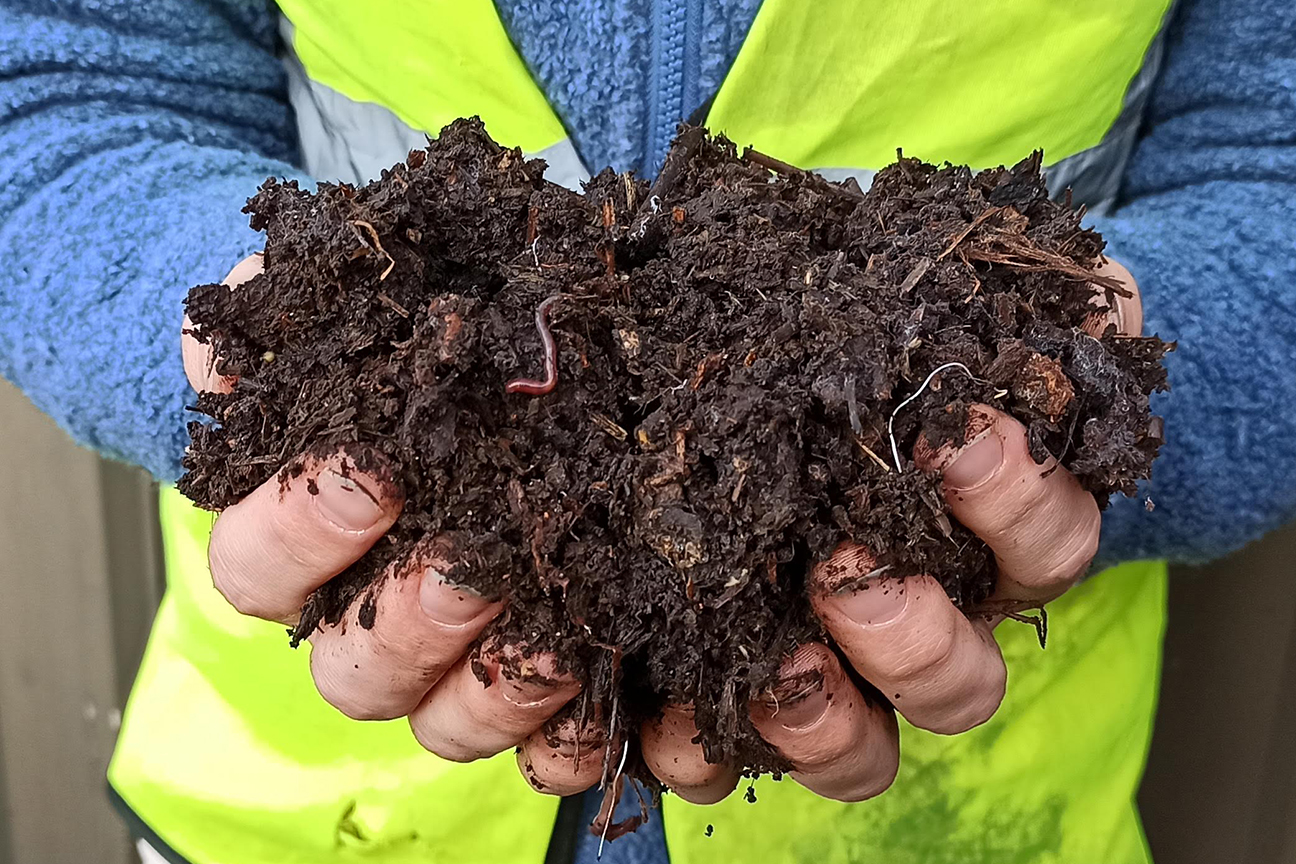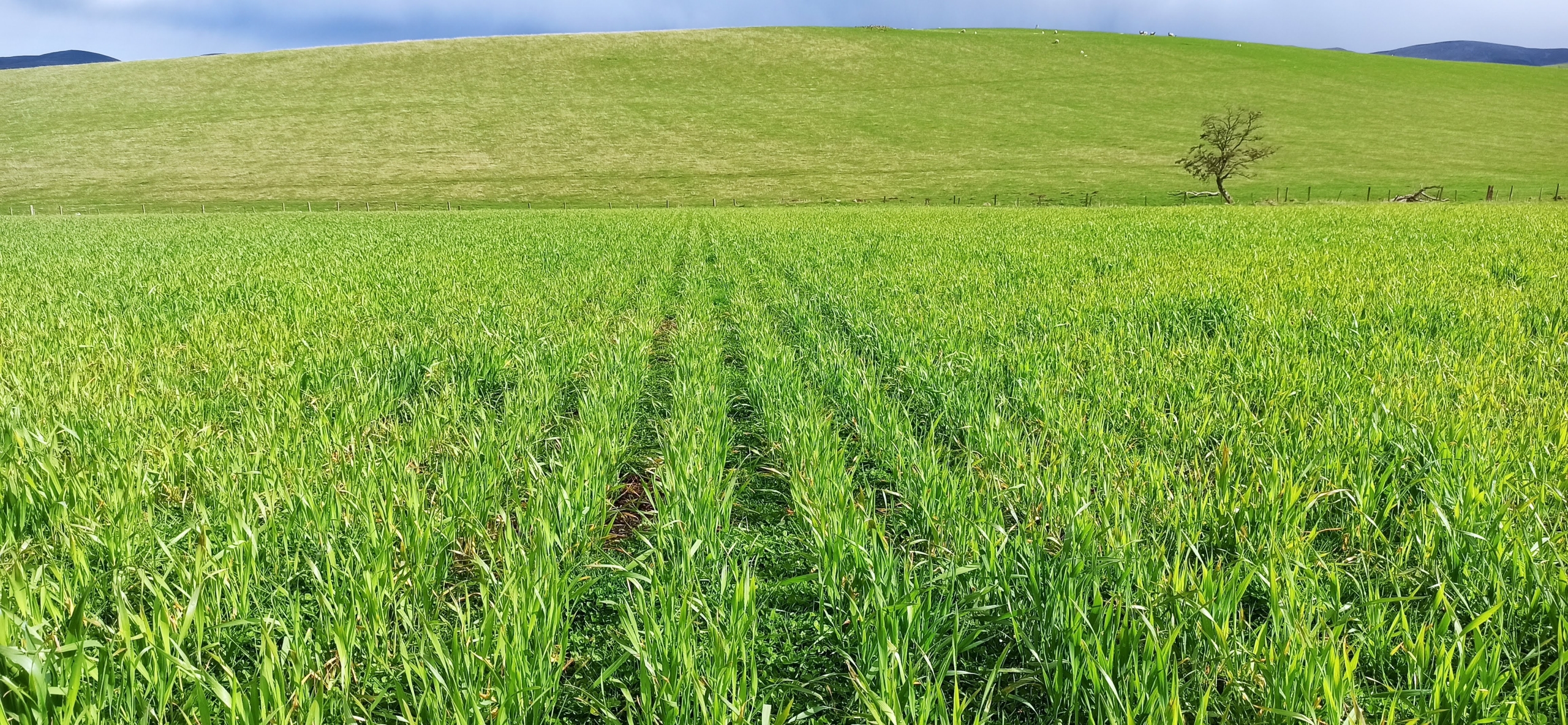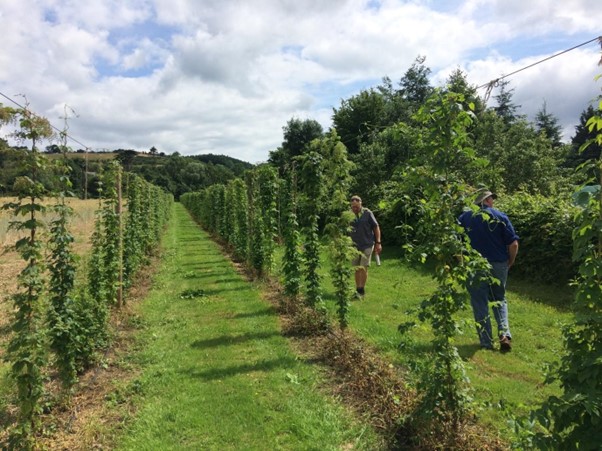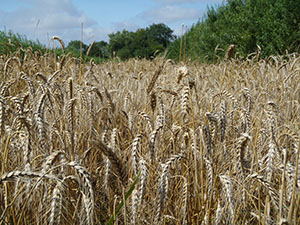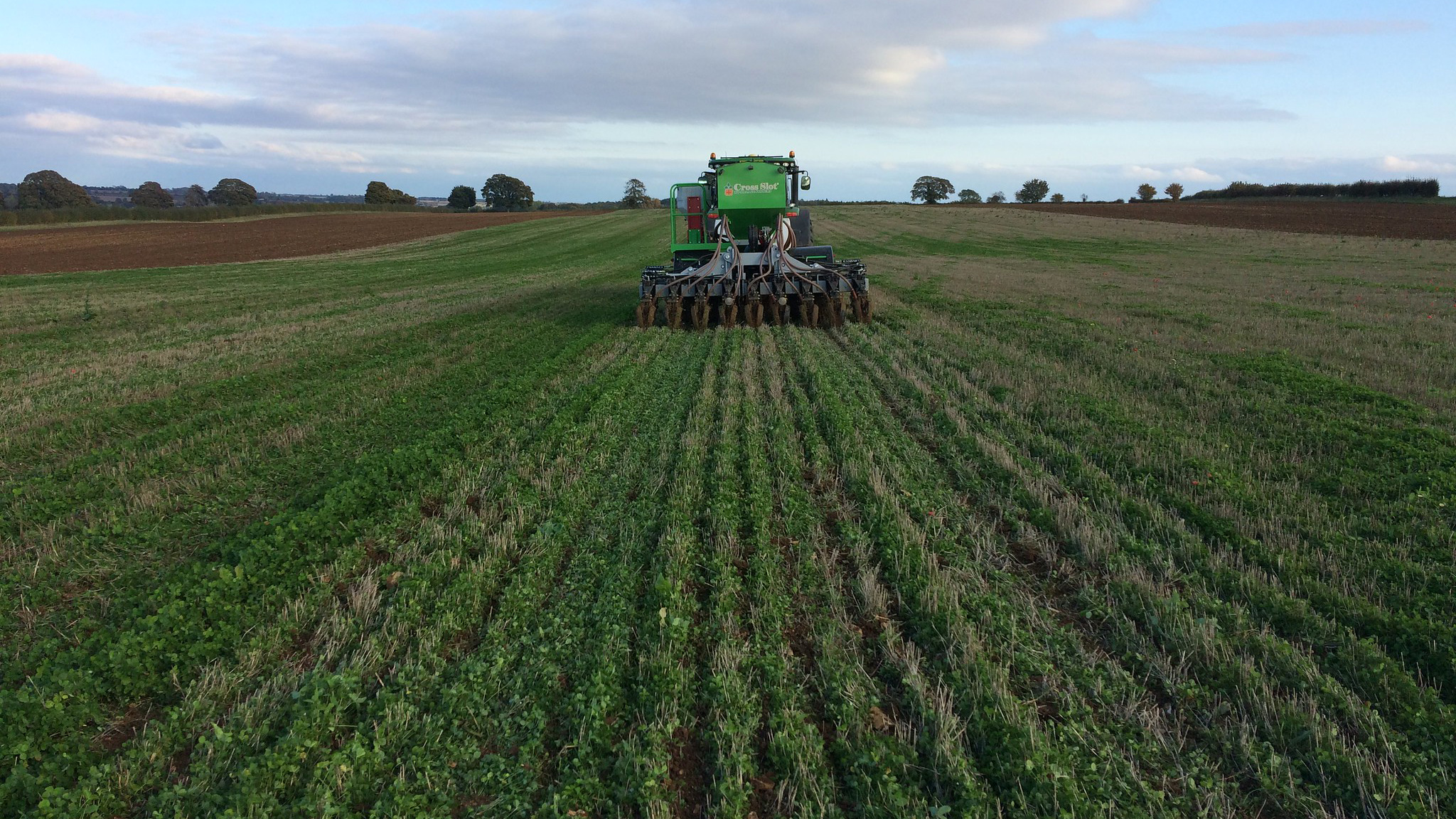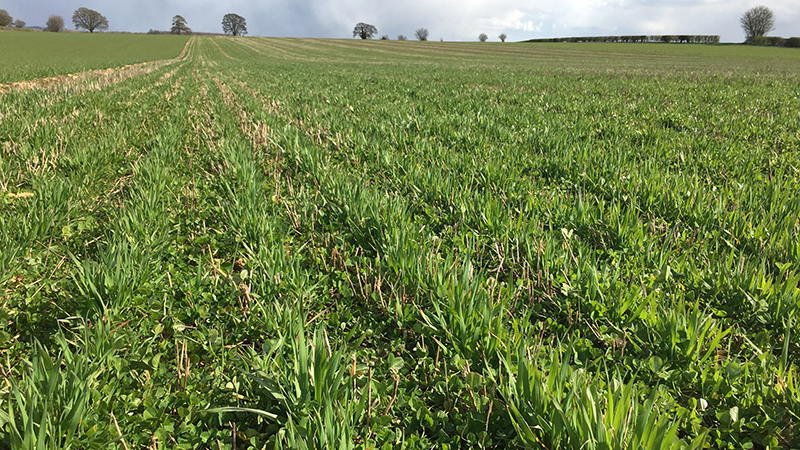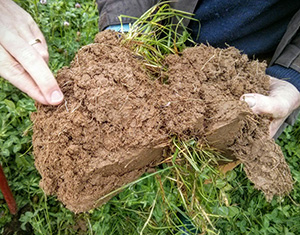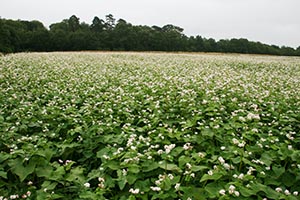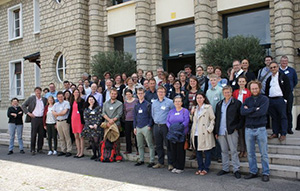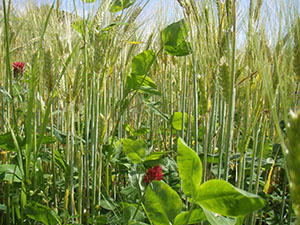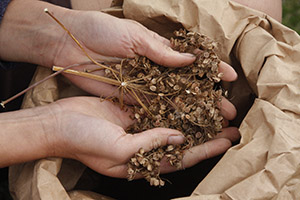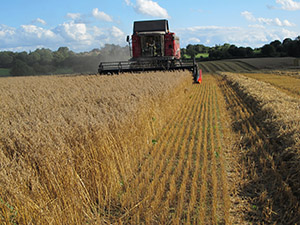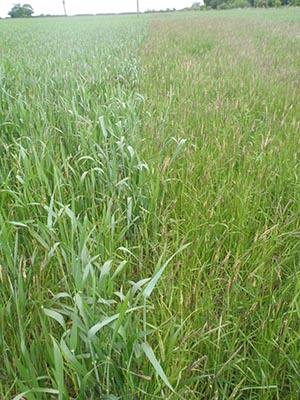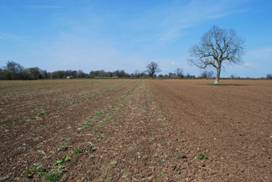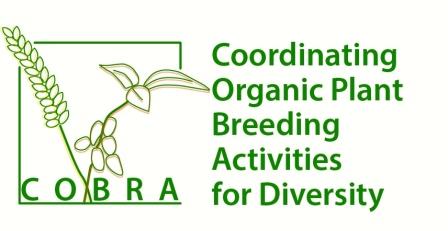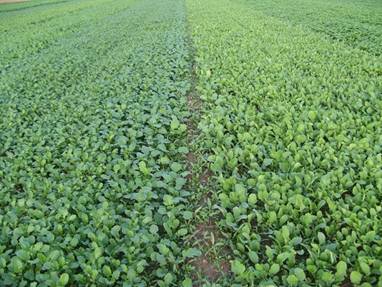GreenGrass
The GreenGrass project will work with conventional dairy farmers who are striving to minimise their carbon footprint and improve efficiency through reduced use of N fertilisers.
Feed the Soil: A research and knowledge exchange hub for novel organic waste management strategies to build healthy soils and healthy crops
The Feed the Soil project will build the knowledge base and develop practical advice for UK land managers on the best way to compost organic wastes and apply it (or its products) to produce a biologically active product to feed the soil.
REA on Plant and Soil Science Research in Regen Ag in the UK
This Rapid Evidence Assessment will map the actors working within the Regenerative Agriculture community in the UK. The final discussion paper will be presented at a plant and soil science conference in March 2024 that will set the scene for future research activities in regenerative agriculture.
Organic Hop Variety Trials
The Organic Hop Varieties Field Lab is a participatory approach to variety testing and evaluation including the whole supply chain. The aim is to secure and improve availability and choice of UK grown organic hops to tackle the rapid decline in UK hop production since the 1960’s.
LIVESEEDING
LIVESEEDING aims to foster the growth of the organic sector and transition towards more sustainable local food systems by delivering high quality organic seed of diverse cultivars adjusted to organic farming for a wide range of crops.
ORC Living Mulches
This project explores the potential of direct drilling cash crops into established stands of clover, also known as a living mulch and expanding our understanding and benefits of a living mulch.
Agro-ecological soil management, EIP Operational Group (European Innovation Partnership)
This EIP operational group compares alternative soil assessment methods specifically for organic dairy systems (Albrecht method, Soil Respiration, etc.), working with the farmers David Wilson, Lyndon Edwards and Wil Armitage in 3-year field trials.
Embedding crop diversity and networking for local high quality food systems
DIVERSIFOOD will evaluate and enrich the diversity of cultivated plants within diverse agroecosystems so as to increase the performance and resilience of those systems while simultaneously increasing the range and quality of the produce for consumers.
Farm-based organic variety trials network
Livewheat will establish a network of farmers and researchers, with broad stakeholders’ support, able to undertake on-farm experimentation and data collection to enable informed decision making for sustainable organic and low-input wheat production
Diversification through Rotation, Intercropping, Multiple cropping, Promoted with Actors and value-Chains Towards Sustainability
Crop diversification systems for the delivery of food, feed, industrial products and ecosystems services – from farm benefits to value-chain organisation.
Designing innovative plant teams for ecosystem resilience and agricultural sustainability
The Horizon 2020-funded DIVERSify project aims to optimise the performance of crop species mixtures (‘plant teams’) as a means to improve yield stability, reduce pest and disease damage, and enhance stress resilience in agricultural systems.
LIVESEED: Boosting organic seed and plant breeding across Europe
EU H2020 research project boosting organic seed and plant breeding across Europe. 35 partners – 18 countries
Innovative Farmers
Innovative Farmers is a not-for-profit network that gives farmers research support and funding on their own terms.
Organic Knowledge Network Arable
OK-NET Arable aims to improve the exchange of innovative and traditional knowledge among farmers, farm advisers and scientists to increase productivity and quality in organic arable cropping all over Europe, in order to satisfy future market demand.
Winter grazing cereals: The effects on crop-weed competition and grain yield
This project assesses the question ‘How can the traditional method of grazing winter wheat with sheep optimised to control black-grass populations?’
Strategies for Organic and Low-input Integrated Breeding and Management
Develop specific and novel breeding approaches integrated with management practices to improve performance, quality, sustainability and stability of crops adapted to organic and low-input systems in Europe and small-scale farms in Africa.
Reduced tillage and green manures for sustainable organic cropping systems
In the TILMAN-ORG project the ORC is collaborating with 15 partners across 10 European countries to investigate the effects of reduced tillage and green manures on organic farms.
Wheat and barley Legacy for Breeding Improvement
The aim of the WHEALBI project is to apply genomic, genetic and agronomic approaches to improve European wheat and barley production in competitive and sustainable cropping systems.
Coordinating organic plant breeding activities for diversity
COBRA involves 41 partners from 18 European countries which will focus on coordinating, linking and expanding on-going organic breeding activities in cereals and grain legumes across Europe, drawing together experts from previously fragmented areas.
Duchy Future Farming Programme
The Duchy Future Farming programme supports innovation in sustainable agriculture. The programme will help British farmers identify and adopt practices that improve their productivity in an environmentally responsible way.
Towards a sustainable and productive EU organic greenhouse horticulture
To improve and disseminate knowledge for new and better production strategies, methods and technologies to support sustainable and productive organic greenhouse/protected horticulture in the EU
Optimise Subsidiary Crop Application in Rotations
OSCAR studies key factors influencing the success of cover cropping, incl. cultivation methods, machinery and suitable plant genotypes. It develops targeted systems for varied conditions in Europe and assesses them in organic and conventional agriculture.



